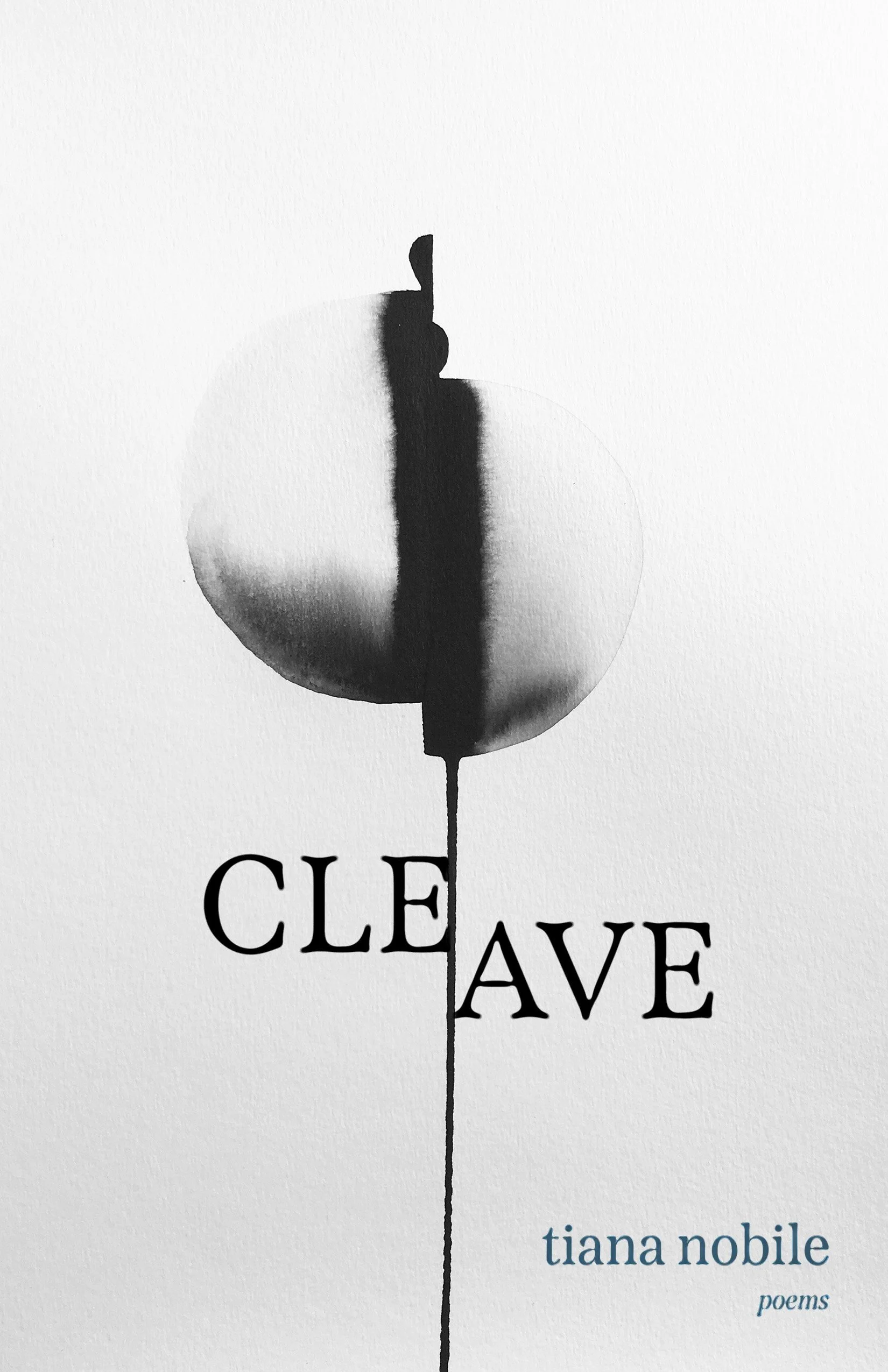cleave
In her debut collection, Tiana Nobile grapples with the history of transnational adoption, both her own from South Korea and the broader, collective experience. In conversation with psychologist Harry Harlow’s monkey experiments and utilizing fragments of a highly personal cache of documents from her own adoption, these poems explore dislocation, familial relationships, and the science of love and attachment.
A Rona Jaffe Foundation award winner, Nobile is a glimmering new talent. Cleave attempts to unknot the complexities of adoptee childhood, revealing a nature of opposites—”the child cleaved to her mother / the child cleaved from her mother”—while reckoning with the histories that make us.
Release date: April 6, 2021
Cover Art by Eden Some
praise for Cleave
“I have been waiting with such anticipation for Tiana Nobile’s remarkable first book, Cleave, to make its way into the world. It is, to my mind, one of the most powerful examples of how poetry can cut to the heart of how a country’s vision of itself can wreak unimaginable harm on the lives and bodies of the people it purports to protect, value, and represent. With breathtaking lyric beauty and formidable formal range, Nobile details the intimate effects of the international adoption industrial complex on children and parents caught up in a system’s unrelenting hunger. This is a book of remarkable compassion and real horror. Its stories will be news to many and all too familiar to others. I cannot look away from these poems. We cannot look away from these poems.”
—Gabrielle Calvocoressi, author of Rocket Fantastic
“Cleave is not only the story of a transnational adoption. Because of Tiana Nobile’s compassionate imagination and lucid discernment, Cleave becomes the story of all our lost selves, of the mothers we long for and the languages we struggle to speak. Writing with what Audre Lorde calls the “intimacy of scrutiny,” Nobile uncovers in the mysteries of her origins our most difficult truths, observing “How we feed on each other for ourselves. / How we keep ourselves alive through each other.” This is an accomplished debut by a powerfully precise poet.”
—Jennifer Chang, author of Some Say the Lark
“In Tiana Nobile's wonderful Cleave, the condition of the Korean-American adoptee is that of a wandering orbitless moon. The speaker fills the absence of her birth mother with aching questions of home, motherhood, and selfhood. Using the scant documentation she has with her deeply felt imagination, Nobile obsessively revisits the mystery of her birth until she creates her own mythic origin story that is beautiful, melancholic and powerful. Tiana Nobile is a bright new talent.”
—Cathy Park Hong, author of Minor Feelings: An Asian American Reckoning
“Tiana Nobile has created that rare gift: a collection of poems that not only springs from experiential knowledge but also offers insight on and says something new about the America in which we’re currently living. Cleave is a stunning debut that will help us, “carry ourselves into the realms of light,” which we find ourselves searching for as we navigate our lives in the most challenging of times. Between the vulnerability in these poems and the music of their lines, Nobile proves a master at using her history and ours to make a better world for today. And love in every form—that which we cling to, and that which we separate from—resonates throughout.”
—A. Van Jordan, author of Cineaste
"[Cleave’s] images haunt and linger long past the turning of the page.”
—Megan Pinto in the Los Angeles Review
“Nobile’s deft poetic hand uses space and syntax to open each line and stretch into possibility, combining the confessional with witness as the book itself becomes an artifact akin to Rukeyser’s The Book of the Dead.”
—Stacey Balkun in The Rumpus
“Tiana Nobile’s poems place her personal experience of adoption . . . in a historical continuum of American imperialism in Asian countries, making this a critical book for our critical times.”
—Michele Sharpe in Mom Egg Review
“The voice and poems in this collection are inquisitive, intellectual, and sensual in their beauty. They search for both meaning and love, and the formal scope of the poetry is delightfully expansive.”
—Michelle Nicholson in Antigravity
“Displacement, belonging, and longing resonate and align into precise technologies that offer us a recalibration of our own histories and our willingness – or unwillingness – to pursue them.”
—Sean Munro, curator of The Splice Poetry Series
